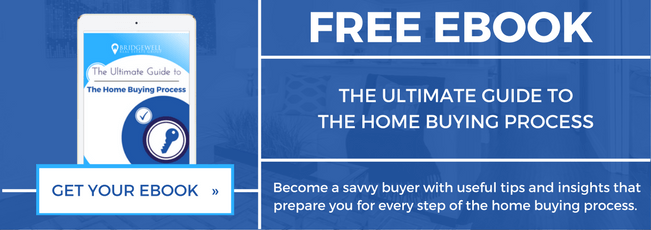Deposit vs Down Payment:
What’s the Difference?
We often get questions about the difference between a deposit and a down payment, and if that is your question then you’ve come to the right place!
This blog explains the different definitions of a deposit vs down payment, PLUS examples of both.
They’re both money that is given throughout the real estate process, but they are given at different times and for different purposes. It’s important that as a buyer you are aware of the key differences between the two.
We also go through when each is due, and the difference in amounts between the deposit and down payment.
Read on for everything you need to know about the deposit & down payment in real estate!
What is the Difference Between the Deposit vs Down Payment?
Mortgage terminology can be confusing, regardless of whether you are a first time home buyer or a reoccurring home buyer!
There are many key differences between the deposit and down payment that are monumental; however, the primary differences are with regards to the timing and amounts of the deposit vs down payment.
DEFINITION – Deposit vs Down Payment
DEPOSIT:
A deposit is an initial amount of money given by the Buyer to ‘hold’ the property until completion, and is generally a marker of the property being sold when combined with subjects being removed.
The deposit ensures that the buyer is committing to the purchase in good faith, and that they have the intention of closing the deal upon removing subjects.
The deposit is held by a third party (often the buyer’s agent’s brokerage) in trust (i.e. it does not typically go directly to the Seller) until the completion date, and the deposit also forms a part of the down payment.
DOWN PAYMENT:
A down payment is the TOTAL amount of funds that the buyer puts forward themselves to go towards purchasing a property. This may be in the form of cash savings, or other savings like funds held in a Registered Retirement Savings Plan (RRSP) or Tax Free Savings Account (TFSA).
The down payment will make up the difference between what the purchase price is and the mortgage loan amount. It is essentially what that the buyer pays towards a home (not factoring in closing costs) to complete on a property purchase.
Because the down payment is the amount paid by the buyer up to the value of the mortgage, it can be calculated as:
Purchase Price – Value of Mortgage = Total Down Payment
The deposit forms a part of the total down payment. Therefore, the down payment due at completion can be seen as follows:
Purchase Price – Deposit (forms of a part of the down payment) – Value of the Mortgage = Remaining Down Payment Due at Completion
If a real estate purchases completes as planned, the deposit is then credited towards the purchase price and forms a part of the down payment. Therefore, is it a part of the down payment, but they are not the same thing and are paid at different times.
AMOUNT – Deposit vs Down Payment
DEPOSIT:
The deposit in real estate is typically a percentage basis, so the amount depends on the value of the property.
The deposit amount is stipulated on the contract and can vary; however, it is common to see the following amounts of deposits in real estate:
- Resale Deposit Amount: A typical deposit in Vancouver, BC is 5% of the purchase price, and is set by the Buyer on the initial contract.
- Presale Deposit Amount: Presale deposits are set by the developers, and typically range from 10-20% of the purchase price due over a period of time.
The amount of the deposit is not fixed or a set regulation, and therefore can be higher or lower if both the Buyer and Seller agree to the amount.
DOWN PAYMENT:
Contrary to the deposit, the down payment is regulated and there are minimum down payment rules in Canada.
As long as you meet the minimum down payment requirements, the amount of down payment is determined by the Buyer when assessing their mortgage affordability and the purchase price of the property that they’re interested in.
The minimum down payment rules are as follows:
- Purchase price of $500K or less: Minimum 5% down payment
- Purchase price of less than $1.5M: 5% on the portion under $500K, 10% on the portion between $500K-$1.5M
- Purchase price $1.5M or above: 20% down payment total
- Investment properties: 20% down total
To learn more about minimum down payment requirements in Canada, check out our blog on this topic: Minimum down payment requirement
DUE DATE – Deposit vs Down Payment
DEPOSIT:
The deposit forms a part of your down payment; therefore, the deposit is paid BEFORE the down payment.
For resale properties, it is common to structure the contract so that the deposit is due upon or within 24 hours of final subject removal.
However, the due date for the deposit is ultimately dependent on how the contract is written and in BC there may also be situations where the deposit is due at acceptance, at rescission, or as otherwise drafted on the contract.
For presale properties, the developer sets the deposit schedule. There are typically multiple deposits due over a period of time when purchasing a presale property. For example, 10% at rescission, 5% in 6 months and a remaining 5% at the 12 month mark.
For more information on subject removal and deposits, check out our blog here: Subject Removal 101
DOWN PAYMENT:
The remaining down payment is not due until the agreed upon completion date; however, to ensure that completion goes smoothly it is common practice to meet your lawyer 1-3 business days prior to completion and give them the final funds at that time.
The deposit forms a part of the down payment, therefore it is on the remaining down payment that is due at completion.
Because you will have already paid the deposit at the time you removed subjects, in the simplest terms, you can refer to this calculation for the deposit and down payment connection:
Deposit (due within 24 hours of subject removal) + Remaining Down Payment (due at completion) + Mortgage (done at completion) = Purchase Price
Therefore, if you planned to put 20% down total and you already paid a 5% deposit, then you would bring the remaining 15% down payment for completion.
Remember: Deposit before down payment!
WHO IS IT PAID TO – Deposit vs Down Payment
In a real estate transaction, always make sure that you have the proper representation and have hired both a realtor and a lawyer to represent you to ensure that the deposits are handled in a professional and proper manner.
DEPOSIT:
For resale properties, the deposit is typically held in trust by the buyer’s agents brokerage. If the property is sold without buyer representation, the deposit should be paid to an appointed solicitor in trust.
In resale situations, the deposit DOES NOT typically go directly to the Seller.
For presale/new build properties (sold by a developer/builder), it is very common for the deposit to be made out to the developer’s solicitor in trust or potentially the developer’s trust account.
It is key to review the presale contract and make sure that you are aware how each deposit should be made out, and exactly who it should be made out to.
DOWN PAYMENT:
The remaining funds for the down payment are given directly to the buyer’s chosen notary/lawyer, and are often given by form of bank draft.
It is important to check with your legal professional in advance as to how much funds will be required to close (down payment & closing costs included), and how they would like that payment to be received.
For more information on closing costs, check out this blog: Closing Costs 101
EXAMPLES OF DEPOSIT VS DOWN PAYMENT
Example 1 – $500,000 purchase with 10% down
- The buyers are buying a property with a purchase price of $500,000.
- They have chosen to put more than the minimum down payment amount required, and will be putting a 10% down payment ($50,000).
- They have an accepted offer on January 20th, and have agreed that the 5% deposit is due upon subject removal on January 27th and that they will be completing on March 4th.
- They remove subjects on January 27th (property is firm/sold).
Deposit: They pay the 5% deposit at subject removal (January 26th) of $25,000 to secure the property.
Down Payment: The buyers plan to put a total of 10% down ($50,000). They’ve already put $25,000 down via the deposit, and so they will bring the remaining $25,000 ($50K-$25K deposit) to the lawyer at completion on March 4th.
Example 2 – Deposit equals the Down Payment
- The buyers are purchasing a property that is $450,000
- The minimum down payment requirement for properties under $500,000 is 5%, making this $450,000 *.05 =$22,500 down payment required
- The buyer has an accepted offer on March 15th and have agreed that the 5% deposit is due within 24 hours of subject removal. Subject removal is March 22nd, and they will be completing on July 5th.
Deposit: The buyer gives the 5% deposit within 24 hours of subject removal, on March 23rd.
Down payment: The buyer decides they will put the minimum down payment, which is 5%. Because the deposit forms a part of their down payment, they have already put forward their total amount down when they submitted their deposit. At completion they do not need to bring any remaining down payment funds, and only need to provide the legal representation with any remaining closing costs.
—
If you’re looking to purchase a property in the Greater Vancouver area and are looking for a realtor to help represent you then reach out to us!
Start a conversation with a local realtor by calling or texting 604-319-0200 or email [email protected]. We’re here to help get your home buying journey started!




